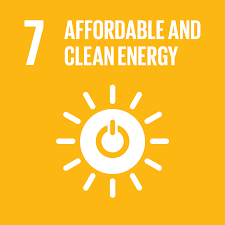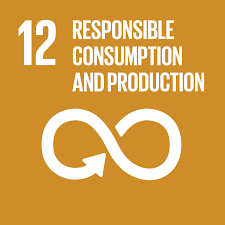Social and Environmental Management
Environmental Performance
Our environmental management is based on three principles:
1. Reduction of environmental impact in line with the priorities established by the Materiality Matrix, and an analysis of the greenhouse gases we emit
According to our Relevance Matrix, the management of the emission of greenhouse gases and residues is our priority to mitigate environmental impacts. In this sense, in 2018, we had an important achievement, implementing a photovoltaic power generation plant, contributing to the reduction of greenhouse gases. The diagnosis of our issue is consolidated in reports based on the GHG Protocol methodology and audited annually.
2. Incentives for pro-environment initiatives throughout our relationship network, a principle known as Sustainable Influence
We mobilize our stakeholders for the mitigation of environmental impacts in their activities. Our actions are focused, especially on employees, clients and suppliers. By 2018, we strengthened the Sustainable Influence with our supply chain – see more in Relationship with Suppliers.
3. In our operations we always seek to comply and to obtain certification for our business
We have the support of an external consultant, who daily follows the Brazilian law, pertinent to the sector and giving us information and updates on standards and laws. To ensure that our performance complies with legal requirements, we annually carry out an external audit at Algar Telecom. In addition, we periodically carry out an internal audit with respect to environmental management compliance practices and report to top management.
In 2018, we invested around R$2.4 million in environmental protection, of which 75% went to energy efficiency projects, in particular equipment maintenance and cutting energy consumption to optimize them, since this is the area of the organization responsible for the majority of emissions. See below our main actions.
Consumption of Energy
GRI 302-1
We are aware of the importance of monitoring consumption of electricity, and we ensure that our operations are energy efficient. Of the total invested in environmental protection, 75% was used for energy efficiency projects, in particular equipment maintenance and cutting energy consumption, since this is the area of the organization responsible for the majority of emissions. We have company policies on energy efficiency and fleet management, and we review them every year.
In 2018, we underwent expansions: Algar Telecom acquired units in the northeastern region of the country and Algar Tech demanded a significant expansion in the fleet to Mossoró (RN), Teresina (PI), Juazeiro (CE), Santo Antônio de Jesus (BA), Barreiras (BA), Itabuna (BA) and Iaçu/BA. Despite the expansion of activities, there was not a significant increase in our energy consumption, we had a 4% increase in 2018 vs. 2017, due to the expansion of the adoption of measures that favor energy efficiency.
We list some of these initiatives below:
- Energy consumption is monitored systematically, by an online tool which shows how much electricity is used in each of our buildings.
- Refueling of vehicles and generators is monitored by a system which combines location and route data (GPS), thus preventing fraud and enabling logistics planning.
- The solar panels installed in our buildings have been extended, and now account for the generation of between 1% and 3% of all the electricity consumed.
- We have replaced fluorescent light bulbs with LED and installed systems to control the functioning of air-conditioners.
- We inaugurated the Capim Branco Plant: The project, located in Uberlândia (MG), was built to meet the energy needs of our operations and is part of the Energy Efficiency Program, initiated by the Company in 2010. The project supplies power to 280 stations in Minas Gerais and the expectation is that our photovoltaic energy consumption represents approximately 18% of our total energy consumption. With 5 MWp of power, the solar farm occupies an area of 85,000 m² and has 15,540 photovoltaic panels, 37 inverters and four transformers. The project has the capacity to produce 9.3,000 MWh per year, enough to supply 3,875 families with a monthly consumption of 200 kWh. The plant has a remote supervisory monitoring system and connects to the grid via a 13.8 kV voltage line with two kilometers of extension. In 2018, the consumption of electric energy generated by solar panels decreased by 13% year-over-year, reaching 6,023 gigajoules, due to the fact that we had a theft of equipment in a site in the city of Tupaciguara (MG), which is responsible for a relevant power generation capacity.
Non-renewable fuel provided a total of 89,940 gigajoules, 37% more than in 2017, while renewable fuel provided 74,453 gigajoules, a slight fall of 6%. We set parameters for the use of fuel, and we ensure that the flex-engine vehicles in our fleet run on ethanol.
| 2015 (Gj) | 2016 (Gj) | 2017 (Gj) | 2018 (Gj) | ∆ 2017/2018 | |
| Consumption of non-renewable fuel | 53,489 | 60,312 | 65,821 | 89,940 | 37% |
| Gasoline A | 18,611 | 32,377 | 43,160 | 69,319 | 61% |
| Diesel oil | 33,945 | 26,275 | 20,878 | 19,523 | (6%) |
| Liquefied Petroleum Gas (LPG) | 696 | 314 | 7 | 0 | (100%) |
| Natural gas | 238 | 1,346 | 1,777 | 1,098 | (38%) |
| Consumption of renewable fuels | 81,408 | 80,502 | 79,418 | 74,453 | (6%) |
| Anhydrous ethanol | 4,683 | 8,283 | 11,045 | 0 | (100%) |
| Biodiesel (B100) | 2,385 | 1,846 | 1,649 | 0 | (100%) |
| Hydrated ethanol | 74,340 | 70,373 | 66,724 | 74,453 | 12% |
| Electricity purchased | 323,171 | 318,649 | 315,281 | 314,259 | 0% |
| Electricity generated by solar panels | 1,272 | 4,848 | 6,914 | 6,023 | (13%) |
| Total energy consumed | 459,340 | 464,311 | 467,433 | 484,675 | 4% |
In 2018, we did not calculate the energy consumption for Anhydrous and Biodiesel fuel, since these fuels are already included in the breakdown of Gasoline and Diesel Oil respectively.

Sustainable Development Goals
7 – Affordable and clean energy
In 2018, we invested R$1.6 million in energy efficiency projects, which corresponds to 79% of the total invested in environmental protection, focused on clean energy generation, efficiency and optimization of energy consumption, since it is the largest source of emissions. We implemented a photovoltaic power generation plant, with installed capacity equivalent to 18% of the energy used by Algar Telecom. With this, about 50% of the energy we consume came from renewable sources. Some major highlights and progress were:
- Reduction of greenhouse gas emissions related to energy consumption;
- Decrease in energy consumption per Revenue Generating Unit in 2018;
- Maintenance of energy policies and governance of efficiency indicators and plans for investments in clean energy – monitored by senior management;
- Real-time monitoring of electricity consumption in all buildings;
- Growing use of clean energy in the supply of vehicles and generators, with integrated and online monitoring of all units.
Greenhouse gas emissions
Since 2012 we have been preparing an annual inventory of greenhouse gases (GHG). We measure emissions from all the production units we control, even if they are shared. The inventory is compiled in the GHG Protocol calculation tool, which is based on internationally recognized methodologies, and we seek to map opportunities for reducing GHG emissions in our processes and operations.
In 2018, we emitted 12,049 tons of greenhouse gases, 5,930 tons emitted directly (scope 1) and 6,484 tons emitted indirectly (scope 2). The 6% decrease observed in our direct emissions is related to the reduction in the use of R410A gas used in our refrigeration equipment.
Our efforts to boost the energy efficiency of our operations and diversify the sources of electricity consumed have contributed to a slowdown in the increase of electricity consumption in the network, to the detriment of expansion of our operations. Although we had an increase in energy consumption, the average annual emission factor of the National Interconnected System (SIN) decreased 20% from 2017 to 2018, which led to a reduction in emissions of scope 2.
The methods used are: The Greenhouse Gas Protocol – Corporate Accounting and Reporting Standard (WRI/WBCSD); IPCC 2006 Guidelines for National Greenhouse Gas Inventories; IPCC Fourth Assessment Report; Specifications from the Brazilian GHG Protocol Program (GVces/WRI); and publications by the Ministry of Science, Technology, Innovation and Communications.
| Scope | 2016 | 2017 | 2018 | ∆ 2017/2018 |
| Direct Greenhouse Gas Emissions – Scope 1 | 4,961 | 5,930 | 5,565 | (6%) |
| Indirect Greenhouse Gas Emissions – Scope 2 | 7,214 | 8,061 | 6,484 | (20%) |
| Total of biogenic emissions | 5,509 | 5,430 | 6,148 | 13% |
ISO 14001
We have been awarded the ISO14001 certificate, which is related to the environmental management system. We are submitted to annual audits for renewal of the certificate. In 2018, we won the certification for the eighth consecutive year.
Waste management and reverse logistics
In line with the National Solid Waste Policy (PNRS), we apply reverse logistics for the electronic devices which we release into the market, ensuring that they are properly disposed of. We have collection points for people – whether or not our customers – to deposit batteries, cell phones (including those of other operators) or any other electronic devices. The material is taken from the collection points each half-year period and put through a process of separation, and parts that can be reused are returned to the manufacturers. In 2018, we collected more than 1 ton of electronics. Subsequently, the remaining items are sent to specialist recycling companies which handle potentially hazardous products. In the period, we also collected more than 26 tons of paper for recycling – telephone guides and directories.
Other initiatives
- Online invoice – over 27% of invoices are sent electronically, avoiding the use of paper.
- Initiatives for sustainable travel, such as a car-sharing club and substitution of gasoline by ethanol for our fleet of vehicles.
- Selective collection, treatment of solid waste, responsible disposal, recycling and reuse, such as organic waste composting.
- Holding video conference and hangout meetings instead of traveling.
- Eco-efficient buildings (Capim Branco Plan), favoring the use of solar energy.
- Expansion of the Algar Telecom’s sustainability committee for the operational areas, helping to further spread the sustainability culture in the company.
- We were recognized for the sixth consecutive time the Most Sustainable Telecom of Brazil by Guia Exame de Sustentabilidade (Exame Sustainability Guide).
- Webinar of Suppliers – to improve the management of suppliers with greater impact for the business in the areas of health, safety and environment, we have established important procedures to monitor and disseminate sustainability practices to contract services, promoting sustainable development of the company and the community. Our goal is to build a sustainable production chain by incorporating sustainability criteria into the supplier selection, development and evaluation process.
- See more information about the environmental initiatives in:
https://algartelecom.com.br/institucional/sustentabilidade/projetos

Sustainable Development Goals
12 – Responsible production and consumption
We contribute to the Responsible production and consumption SDG, promoting actions and programs to improve the sustainable goals.
To contribute to the goal of achieving sustainable management and efficient use of natural resources by 2030, we make investments in renewable sources, such as the photovoltaic plant reported in the energy efficiency initiative. We also seek to substantially reduce the generation of waste through the Solid Waste Management Plan filed in the city halls of the municipalities where we operate.
We also collaborate with the goal of encouraging companies, especially large and transnational companies, to adopt sustainable practices by 2030. In this sense, we carry out actions to inspire our stakeholders to carry out sustainable practices. In 2018, we held an important meeting for supplier engagement – see more in:
https://algartelecom.com.br/institucional/sustentabilidade/projetos
 Share
Share